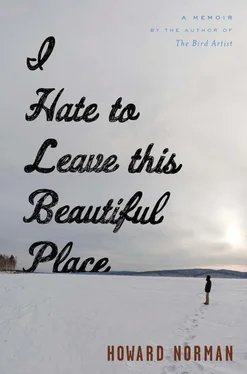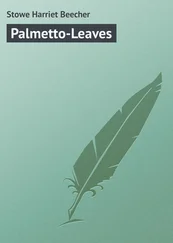Late at night, I ate strawberries and cream, then watched the “Better Angels of Our Nature” episode. And I thought, This summer I’ve experienced my better and worse angels equally, and the summer isn’t over yet.
By the end of August the kingfisher was back on its tree. I contacted the state biologist who had originally captured it. She said, “Yeah, just as I suspected, it was a parasite. It should be fine now, except sometimes just a short time away from home like that disorients a kingfisher. It might choose to change its tree. Which might not sound like much, but for a kingfisher it’s major. Keep me posted. I’d be interested to know what’s going on there.”
Back at the millpond, I sat and watched both of the resident kingfishers. Splash to the west, then splash to the north, a kind of contrapuntal ornithology, and both birds were having much success. Then I saw that the kingfisher on the north side of the pond was in fact “teaching” a juvenile, perched on a nearby branch — I had read about but never observed this — to hunt. The way it works is that the parent bird will kill a small fish, then lay it on the surface of the pond. The offspring will then attack the fish, often missing it entirely, but occasionally spearing the fish successfully with its bill. This apprenticeship may go on for weeks and weeks. On this late-August day, the juvenile kingfisher was both picking up its mother’s leavings and separately nabbing its own fish. I sat there for most of the afternoon. I wrote letters, read part of a friend’s novel, took a nap, ate peaches. I hated to leave that beautiful place.
“I have only about three minutes,” my brother said.
“Put in some more coins, then. Or — go ahead, call me collect. I don’t care.”
“No, I mean I’m allowed only three minutes. Get it?”
“Where are you?”
“Terre Haute, Indiana.”
“I was wondering why I hadn’t heard from you.”
“There was a hearing. I didn’t contest anything. They had me ass to ashes.”
“I’ll visit.”
“It’s for eighteen months. Definitely eighteen months.”
“I’m sorry.”
“I was wearing you down there, though, wasn’t I? I could tell by your voice I was starting to work the magic. I mean, you’d agreed to take me to the border, if not across. Another week or two would’ve done it. I’m pretty sure.”
“Maybe so.”
“But be honest — you’re kinda relieved it didn’t come to that, right?”
“I don’t know. What does it matter, anyway?”
“I haven’t met your wife. I haven’t met your daughter.”
“When you get out, I’ll come drive you to Vermont. You can visit us. I’ll take you across all the state lines between Indiana and here. We can drive at night if it makes you more comfortable. That’s about all I can offer, given the present situation.”
“Time’s almost up. I’m getting the look from the guard.”
“Okay. Call collect next time if you want. Hope you’ll be all right there.”
“How all right can a person be in federal prison, ask yourself that. Though they do have — I mean, it’s white-collar crime, minimum security. They do have therapists, priests, rabbis — they’ve got movies on one of those old-fashioned projectors. I’m thinking of doing some writing.”
I had one last therapy session. “Do you want to continue to try and figure out the whole thing with the Confederate soldier?” Dr. ____ asked.
“I think I’ve been a little sick all summer. I was seeing things differently. I was feeling things differently.”
“Did the confusion of it disturb you? It seemed to at times. The phone calls from your brother…”
“Not really. I didn’t mind it. I got some work done. I got some bills paid. That well was goddamned expensive. I only fill up the bathtub halfway now, even though there’s plenty of water. Saw a lot of friends. Saw five or six movies. I spent a lot of time with Emma.”
“A normal summer with a few extra added attractions — is that how you prefer to see it?”
“I wouldn’t put it that way.”
“How would you put it?”
“The guy with the Confederate soldier’s hat was. . disappointing.”
“You mean you wanted a ghost. You mean you wanted your fever to have put you in touch with a reality nobody else was in touch with. You wanted a summer of illness to have earned its keep somehow. To have provided you with a once-in-a-lifetime experience. But you are always saying how just everyday things here in Vermont sustain you so much. Actually, you know what? I don’t see any real contradictions there. Not really. Howard, life contains disappointments.”
“I know you didn’t mean that to be as patronizing as it sounded. But the way you said it was kind of a dull platitude.”
“Still, I meant it. Disappointment is a subject to discuss.”
“I’ve always thought disappointment was in direct relation to expectations.”
“So if you lower your expectations, disappointments arrive less often, or something like that. That’s got some humor to it.”
“I’m just saying I expected — fever or not — too much from the guy. It was enough that he looked very good in that hat.”
“I can see you prefer to end on a light note. How unusual. Anyway, our time’s up.”
The night before I had to, and hated to, leave Vermont, because I had taken a teaching position in Maryland, I had a dream so vivid it made waking life seem a dream. Or something like that. I dreamed of all my friends asleep in their beds. Perhaps the influence was the fact that, before I’d fallen asleep myself, I’d read a poem by Mark Strand that contained the line “my friends asleep in their beds.” It was a poem narrated by an insomniac, the image informed by vicariousness and desire. The poem began with a nighttime tour of bedrooms and sleeping porches of the poet’s friends on a hot summer night.
Michael and Jackie asleep in their bed. Rick and Rhea asleep in their bed. Roy and Gabrielle asleep in their bed. Denise and François asleep in their bed in Paris. Chet and Viiu asleep in their bed. Alexandra asleep in her bed. David asleep in his bed in Venice. Gary and Vickie asleep in their bed. Kazumi Tanaka asleep in her bed. Richard and Jane asleep in their bed. Susanna and Larry asleep in their bed. David and Rebecca asleep in their bed. Ed and Curtis asleep in their bed. Julie asleep in her bed. Jerry and Diane asleep in their bed. Tom and Melanie asleep in their bed. Rick and Andrea asleep in their bed. David and Ann asleep in their bed. Bill and Trish asleep in their bed. William and Paula asleep in their bed. Elizabeth asleep in her bed.
I woke up, put on the BBC, and stepped out onto the dirt road at five A.M. Crows calling and the scuffle of deer in the direction of the trout pond, hummingbirds at the fuchsia. Gertrude was just returning to the barn. Can you imagine what comprises an owl’s night? Already things I love most every day had happened.
The Healing Powers of the Western Oystercatcher
BOB EDWARDS
Morning Edition, NPR
12-16-2003
Bob Edwards, host: Imagine leaving home for the summer and while you’re away, a terrible event occurs in the place you’ve left behind. That was the experience of some Washington neighbors of NPR special correspondent Susan Stamberg. Her Tuesday series, “No Place Like Home,” continues.
Susan Stamberg: Novelist Howard Norman, his wife, poet Jane Shore, and their teenage daughter spend their summers in Vermont. This year they loaned their D.C. home to an acquaintance and her two-year-old son. This past July, in the dining room of that house, the woman committed suicide and took her little boy with her.
Jane Shore: At first, I was thinking, and we were all thinking, if we could actually go back home, and if we could actually live in the house, because it had been violated.
Читать дальше












